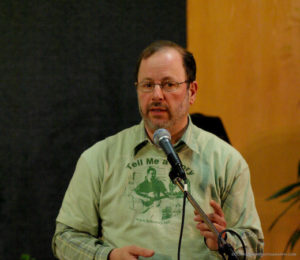Never Fool Me, Once is Enough
Fool me once, shame on you. Fool me twice, shame on me. I wondered where and when that quote came from?
I’ve read: The earliest recording of this proverb in print is from a book called The Court and Character of King James by Anthony Weldon, 1651, where it reads: “The Italians having a Proverb, ‘He that deceives me once, it’s his fault; but if twice, it’s my fault.’”
I’ve also read: “For once deceiv’d, was his; but twice were mine” said by Achilles during the “THE EMBASSY TO ACHILLES” in Homer’s Iliad (Translation Alexander Pope), which would be much earlier in time.
Regardless of its origin, I question whether or not this is a rule to always live by. Being unwittingly made a fool of may not be so bad and shameful depending on the situation.
I’m a storyteller and a writer. I profess in both activities, I tell lies at times. Or as I like to think of it, I embellish the truth. The purpose of those embellishments is to captivate my readers and audiences so that they become part of the stories I share. In some cases, I am fooling them. If asked, “Is that a true story?” I’m usually honest. I bear no shame for I will admit to the falsehoods. Now if they don’t ask me if it is true. I still bear no shame, for they have been entertained and have hopefully accepted the fact that it could have been true. I call it plausible lying.
There is an occasion when telling stories to young children I give the truth but they have to listen and be deductive regarding my response to determine the truth.
“Is that true?” they ask.
My answer is, “Well if it isn’t, it should be.” They generally have never followed up on that answer.
We all share stories with others. Our memories are not infallible. So what if we add a few things to make our tellings more interesting. In most cases the heart of the story is true. There is no intention of making fools out of the listeners. In fact, if we are good, they ask for more. Whether or not they believe in its truth, they like being fooled. There’s no shame either way in that.
There are some storytellers that make a living being professional liars. Their stories start off so real and it’s not until you get deeper into the story being shared that you have to pause and tell yourself, “Hey, wait a minute, this couldn’t have really happened. He got me again. I love it.”
There are times when “Fool me once, shame on me…” makes sense to follow its message. If you’ve been fooled once, beware so that you’re not fooled again. In those cases, it is wise to learn from your first experience. I certainly learned when I was in my 20s and I received a call on the phone and was told that I had won a trip to Bermuda at a great price. I just had to pay upfront $167 for some amenities and they would send me the tickets. Today, I consider that $167 I paid well spent, considering how many other times since then I have received these types of phone calls and can now recognize that they are scams. Had I paid on those subsequent calls, I would have still gained nothing and the money would be gone no matter how hard I tried to get it back. So by being fooled once, I avoided the shame on me.
So remember, not everything is black and white. Don’t totally believe in the be fooled more than once, you are a shameful fool. Sometimes you just have to enjoy the story and let the foolery happen. Would I lie to you?

